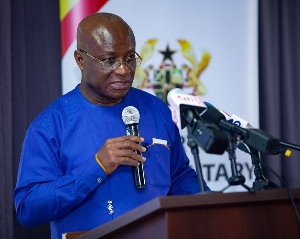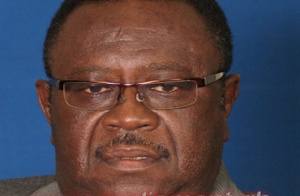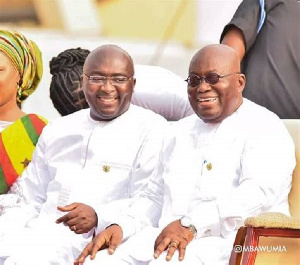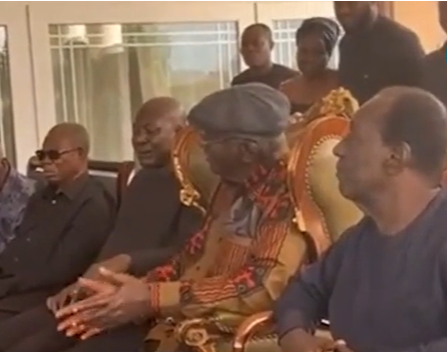Parliamentary affairs ministry holds workshop on preliminary report of CRCC

The Ministry of Parliamentary Affairs has held a stakeholders consultation validation workshop on the Preliminary Report of the Constitutional Review Consultative Committee (CRCC) on the review of the 1992 Constitution of Ghana in Accra.
The CRCC, which was constituted last year by the Ministry of Parliamentary Affairs, comprising a multi-sectoral representation, is under the chairmanship of Madam Clara Kasser-Tee.
The Committee’s Preliminary Report was submitted to the Ministry of Parliamentary Affairs early this year.
The Committee reviewed the report of the 2010 Constitutional Review Commission (CRC), and its accompanying White Paper, and considered other provisions that might lend themselves to possible review.
This exercise was to enable the Ministry to follow up on the effort that started in 2010, apprise itself of matters that have emerged thereafter, and identify specific provisions in the 1992 Constitution that could engender debate for the review of the 1992 Constitution.
The objective of the three-day workshop, on the theme “Building Consensus and Promoting Ownership for the Review of the 1992 Constitution,” was to afford stakeholders the final opportunity to review the preliminary report of the CRCC, build consensus, and nurture ownership of the constitutional review process.
Mr. Osei Kyei-Mensah-Bonsu, the Minister of Parliamentary Affairs, in his opening remarks, said over the past six years the Ministry had engaged a cross-section of the Ghanaian society in respect of the usage and application of the 1992 Republican Constitution and its effect on ensuring efficient and effective governance that yields the “blessings of liberty, equality of opportunity, and prosperity” for all the Ghanaian people.
He said the diverse stakeholders that the Ministry had engaged include the Attorney-General (representing the Office of the President), Ministers of State, former President John Agyekum Kufour, the Office of former President John Dramani Mahama, Parliament of Ghana, and Members of Parliament, the Judiciary, the independent governance institutions, civil society organisations, think tanks, the academia, chiefs, employers, employees, organised labour, faith-based organisations, and the public.
The Minister noted that these people and bodies recognise the strides the country had made since January 1993 when the country experienced a rebirth under the Fourth Republican Constitution; however, they were unanimous in their observation that the citizenry was not having the optimum benefits of the dividends of democracy.
He said in that regard, they variously concluded that there was an urgent need to revisit the 1992 Constitution with a view to improving the delivery of governance to upscale a well-thought-through structured, sustainable national development, which would secure improvement in the living conditions of the Ghanaian people.
Mr. Kyei-Mensah-Bonsu recalled that in the year 2010, President John Evans Atta Mills, in fulfillment of his campaign promise, set up the Professor Fiadjoe-led Constitutional Review Commission (CRC); stating that among other things “the Commission found that the 1992 Constitution was a resilient foundation for good governance in Ghana.”
He said it had been the basis of the flourishing institutions under the Fourth Republic and had the potential for guiding the evolution of the nation’s institutions towards peace, prosperity, and a good life for its people.
“Under that Constitution, [as at 2010] five successful presidential and parliamentary elections have been conducted, two of them involving a transfer of power from a ruling party to an opposition party. However, the Commission found that there are many areas of the Constitution and of constitutional practice that need to change for the better,” he said.
He said it was no wonder that the CRC’s report was aptly christened “From a Political to a Development Constitution with the aim to shift from the ‘politics of democracy to the economics of democracy’.”
He said the process was truncated by legalities; stating that the Ministry, individuals, and many other state and non-state actors had kept the topic afloat.
“The consensus is that we cannot let all the great effort, and the excellent outcomes go to waste. Consequently, the CRCC was expected to bridge the gap to make up for the time-lapse,” he said.
Madam Clara Kasser-Tee, Chairman of the CRCC, in her presentation, noted that the report of the CRCC had recommended the replacement of the death penalty in the 1992 Constitution with a sentence to life imprisonment without parole.
Mr. Haruna Iddrisu, the National Democratic Congress (NDC) Member of Parliament for Tamale South, reiterated the need for the Constitutional Review report to address the issue of winner-takes-all in the body politics of the nation.
Source: GNA





